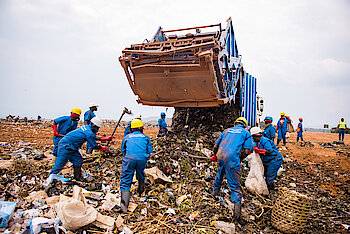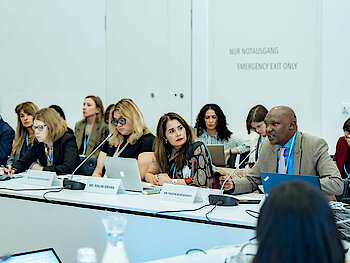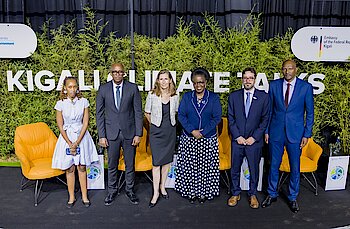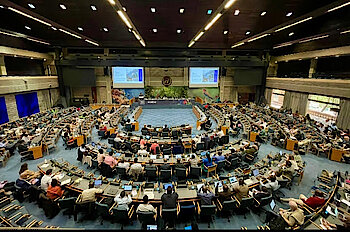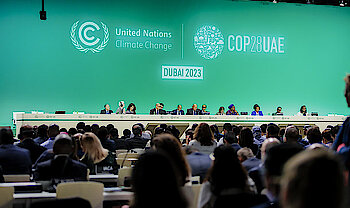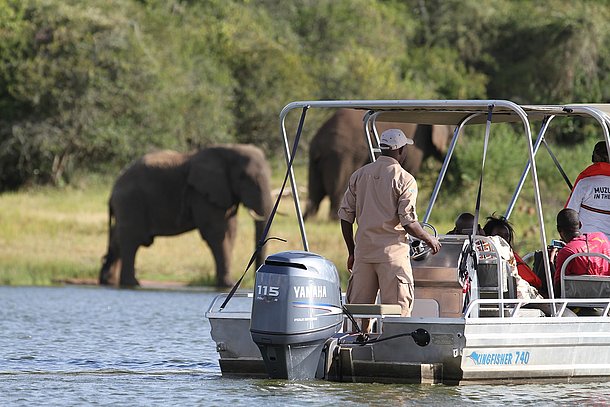
Five ways Rwanda is investing in ecotourism and conservation
Rwanda is located in the Albertine Rift, a region considered especially rich in biodiversity, making it ideal for conservation and ecotourism. From the protection of national parks to advancing responsible tourism, the country has demonstrated a strong commitment to promoting biodiversity conservation, payment for ecosystem services, and sustainable travel.
This commitment was formalised through Rwanda’s Green Growth and Climate Resilience Strategy, which includes ‘Ecotourism, Conservation and Payment of Ecosystem Services’ as one of 14 programmes of action.
Here are five ways Rwanda is promoting ecotourism and conserving its natural heritage.
- Creation of Gishwati-Mukura National Park and designation as UNESCO Biosphere Reserve
In 2016, Gishwati-Mukura was established as a legally protected area and the country’s fourth national park. Four years later, the landscape was named among the World Network of Biosphere Reserves by the United Nations Educational, Scientific and Cultural Organization (UNESCO).
The rehabilitation of the Gishwati-Mukura landscape and the creation of the national park was made possible by the Landscape Approach to Forest Restoration and Conservation (LAFREC) Project implemented by Rwanda Environment Management Authority with the support of the Global Environment Facility through the World Bank, and the Forest of Hope Association.
This achievement has led to the sustainable conservation and management of Gishwati-Mukura National Park, new opportunities for community empowerment, education and research for sustainable development as well as for eco- and community tourism.
- Mountain gorilla conservation and re-introduction of threatened and endangered species
The Government of Rwanda, through the Rwanda Development Board and in collaboration with conservation partners, has achieved success in protecting and increasing the endangered mountain gorilla population and conserving its habitat.
Thanks to community led conservation efforts, the mountain gorilla population in the Virunga Massif has increased from 480 in 2010 to 604 as of June 2016. Today, mountain gorillas are the only great ape species increasing in number in the world and the species was recently down-listed from critically endangered to endangered on the IUCN Red List.
In 2015, the Government of Rwanda teamed up with African Parks to reintroduce lions to Akagera National Park after two decades of local extinction. This conservation milestone was followed by the reintroduction of 18 critically endangered Eastern black rhinos in 2017, further advancing the restoration of the park’s biodiversity. In 2019, five additional rhinos from European zoos were translocated to Rwanda to increase the genetic diversity of the country’s rhino population.
As a result of these efforts, the populations of these endangered animal species have increased, playing a crucial role in saving them from extinction.
- Investments in ecotourism
Rwanda’s tourism sector is the country’s leading foreign exchange earner. In 2019, the sector earned US $498 million. Within the industry. ecotourism is quickly becoming dominant, thanks to the demand from travellers seeking low-impact experiences.
Rwanda has positioned itself as a high-yield, low volume destination in keeping with its conservation-centric approach to tourism. This strategy has attracted several high-end lodges and professional management such as international brands including Singita, One&Only, Wilderness Safaris and Mantis Collection and local brands such as The Retreat, Amakoro Songa Africa, Sabyinyo Silverback Lodge and The Bishop’s House.
These and other hospitality brands have made a valuable addition to the tourism offering, providing a diverse range of world class accommodation and experiences and contributing to conservation efforts - especially reforestation. As a result, Rwanda has been recognised by leading international travel publications as one of the top global destinations for luxury ecotourism.
Rwanda’s conservation efforts would not have been a success without the power of partnerships. The Government of Rwanda works hand-in-hand with several conservation partners including the Greater Virunga Transboundary Collaboration, Dian Fossey Gorilla Fund, International Gorilla Conservation Programme, Wildlife Conservation Society, Gorilla Doctors, African Parks, Rwanda Wildlife Conservation Association, Albertine Rift Conservation Society and the African Leadership University among others. These partnerships support the promotion of biodiversity conservation, and enable Rwanda to invest in nature and communities.
- Protection of national parks
The protection of national parks and payment of ecosystems count among significant conservation achievements in Rwanda. This has been achieved through the expansion of the Akagera National Park buffer zone, the long term protection of Nyungwe and Akagera national parks through a unique partnership with African Parks, and the rehabilitation and establishment of Gishwati-Mukura National Park.
The Government of Rwanda also recently announced plans to expand Volcanoes National Park due to its growing mountain gorilla population and vision for community livelihood improvement. This once in a generation initiative will expand the park by approximately 23%, increasing its size by 37.4 square kilometres (3,740 hectares).
To ensure the best use of community benefit funds, Rwanda promotes close ownership, participation and technical support from local communities. Promising projects include payment for ecosystem services schemes with tea factories compensating forest-adjacent communities for water filtration services provided by protected areas and promoting the rehabilitation of degraded areas such as Gishwati and Mukura forests.
In addition, 10% of park tourism revenue is invested in the communities surrounding Rwanda’s national parks, which fosters ownership and builds a constituency for conservation. Rwanda has also established a fund to compensate for any damage caused by wildlife, which is financed by 5% of tourism revenue.
Rwanda’s conservation efforts aim to maintain and expand the country’s protected areas as key economic assets supporting climate-resilience, and acting as havens for biodiversity and sources of vital ecosystem services.
- Utilising Payment for Ecosystem Services and Natural Capital Accounts
Payment for Ecosystem Services (PES) occurs when a beneficiary or user of an ecosystem service makes a direct or indirect payment to the provider of that service. The idea is that whoever preserves or maintains an ecosystem service should get an incentive for doing so. To promote this model of environmental conservation, Rwanda has partnered with Costa Rica and is developing a scalable PES system.
Rwanda has also developed Natural Capital Accounts for land, water, minerals and ecosystems (key natural resource pillars of economic development and sustainable growth). Natural Capital Accounts (NCA) are an important resource for tracking progress on socioeconomic, environment, and natural resource indicators.
The country has also set a target to allocate 37.7% of land to conservation in its National Land Use and Development Master Plan. This demonstrates the Government of Rwanda’s commitment to environment protection, natural resource management and climate change preparedness.
Learn more at www.rdb.rw and www.visitrwanda.com.
Topics
More posts
Rwanda and Germany Host Second Kigali Climate Talks
The second edition of the Kigali Climate Talks has explored the role of climate finance in building Rwanda’s resilience and capacity to adapt to…
GREEN RWANDA AT UNGA79: ENDING PLASTIC POLLUTION AND ADVANCING CLIMATE ACTION
At the 79th United Nations General Assembly (UNGA79) in New York, Rwanda’s Ministry of Environment demonstrated its commitment to global environmental…
Rwanda and Sweden Sign Memorandum of Understanding to Cooperate on the Implementation of Article 6 of the Paris Agreement.
Today, the Swedish Energy Agency, representing the Kingdom of Sweden, and the Ministry of Environment of Rwanda signed a Memorandum of Understanding…
Rwandans urged to double efforts in combating rising air pollution
Rwanda joined the rest of the world on September 10, 2024 to mark the International Day of Clean Air for Blue Skies. During this observance, the…
Rwanda to embark the development of Short-Lived Climate Pollutants Plan
Image: Nduba Landfill in Kigali City, (The landfll is known as one source of methane gas which is the greenhouse gas and the short lived pollutants);…
RWANDA’S NEGOTIATORS ARE IN BONN PUSHING FOR CLIMATE FINANCE
Rwanda’s negotiators led by Mr. Faustin Munyazikwiye – Deputy Director General of the Rwanda Environment Management Authority (REMA) – are in Bonn,…
Rwanda and Germany launch the “Kigali Climate Talks”
On 9 May 2024, Dr Jeanne d’Arc Mujawamariya, Rwanda’s Minister of Environment, and Heike Uta Dettmann, Ambassador of the Federal Republic of Germany,…
Tackling Short-Lived Climate Pollutants: Insights from CCAC2024 Conference
The Climate and Clean Air Conference 2024 (CCAC2024), took place in Nairobi, Kenya, on the sidelines of the Sixth session of the United Nations…
RWANDA WELCOMES HISTORIC COP28 DECISION TO TRANSITION AWAY FROM FOSSIL FUELS
The Government of Rwanda has welcomed the ground-breaking decision made at the 28th Conference of the Parties (COP28) to the United Nations Framework…




